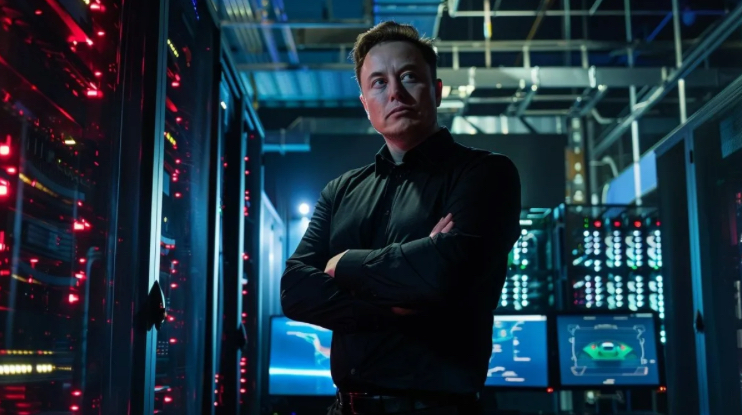Colossus: Musk’s AI Milestone Shakes the Industry
Elon Musk’s xAI company has achieved a groundbreaking technical feat at its new Memphis data center, known as “Colossus.” The facility successfully brought all 100,000 Nvidia H100 chips online, making it the most powerful computer in history. This accomplishment, achieved in under six months, has positioned xAI as a key player in the AI space, enabling the company to train a model with more computing power than any other. Despite Musk’s claims, industry experts have raised questions about whether xAI has the technical capacity to run such a vast array of GPUs simultaneously due to the limitations of current networking technology.
Caveat: Musk’s claim that this is the largest AI training system in the world hinges on the assumption that these GPUs truly operate together in a unified system, acting as a single computational entity. There are industry concerns about whether current networking technology can successfully link so many GPUs without bottlenecks, which would affect their ability to function as one cohesive supercomputer. Until those technical challenges are independently verified and overcome, the claim that Colossus is definitively the largest AI training system is speculative, based on theoretical performance rather than proven, sustained output.
Energy Challenges in the AI Arms Race
The scale of computing power in the AI industry has brought new challenges, particularly in energy demands. xAI had to supplement traditional power sources with natural gas turbines to maintain Colossus’ operations while awaiting more utility capacity. This mirrors broader concerns in the industry, as seen in OpenAI’s pursuit of government support for data centers requiring massive energy supplies. Companies like Microsoft and BlackRock are heavily investing in infrastructure projects to fuel the growing demand for AI computing power, with the consensus being that more connected GPUs lead to increasingly powerful AI models.
My Take
In comparison, the current fastest supercomputer, Fugaku in Japan, delivers about 442 petaflops of general-purpose computing power. This means Colossus potentially has nearly 1000 times more AI-specific computing power than Fugaku’s general-purpose performance.
Musk’s ambitious push for computing power sets a new benchmark, but the energy hurdles and networking challenges highlight the growing pains of AI’s rapid evolution. It reminds us that scaling AI infrastructure will require as much innovation in energy and networking as in the models themselves.
Link to article:
Credit: Semafor

